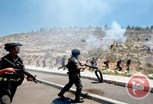15 may 2014
|
|
In commemoration of the 66th annual Nakba day, hundreds of Palestinian youth from the Ramallah district moved against Israeli soldiers outside of Ofer prison in Beitunya. Soldiers retaliated with tear gas, live ammunition and rubber-coated steel bullets. During the clashes, soldiers killed two demonstrators, aged seventeen and twenty two.
The first, who was shot in the chest, died in hospital, while the second, who was shot in the abdomen, died in the ambulance. An additional 24 Palestinians were shot with live ammunition and rubber bullets during the confrontation, and two victims are currently hospitalized in the Intensive Care Unit at Ramallah Public Hospital. Over 10 youth have also received medical attention for excessive tear gas inhalation. |
Nakba day is the annual commemoration of the 800,000 Palestinians who were forced out of their homes in Historic Palestine during the War of 1948.
Nakba, which is the Arabic word for catastrophe, is also used to describe the situation of Palestinians at the hands of the Israeli occupiers.
At the heart of the catastrophe are the five million Palestinians currently living as refugees, the largest refugee population in the world. Demonstrators chose Ofer prison as the site of their demonstration today, because 500 Palestinian political prisoners are currently jailed there. Forty detainees in Ofer are currently on hunger strike to protest the Israeli practice of administrative detention, or imprisonment without formal charges.
One more young man from Jalazoun is still in intensive care. He, as the two martyrs of Nakba 66, was shot by Israeli snipers with live ammunition.
Update: In addition to the young men who were killed in Ofer, another Palestinian from Jalazoon Camp was killed by Israelis today. Details are unconfirmed.
Nakba, which is the Arabic word for catastrophe, is also used to describe the situation of Palestinians at the hands of the Israeli occupiers.
At the heart of the catastrophe are the five million Palestinians currently living as refugees, the largest refugee population in the world. Demonstrators chose Ofer prison as the site of their demonstration today, because 500 Palestinian political prisoners are currently jailed there. Forty detainees in Ofer are currently on hunger strike to protest the Israeli practice of administrative detention, or imprisonment without formal charges.
One more young man from Jalazoun is still in intensive care. He, as the two martyrs of Nakba 66, was shot by Israeli snipers with live ammunition.
Update: In addition to the young men who were killed in Ofer, another Palestinian from Jalazoon Camp was killed by Israelis today. Details are unconfirmed.
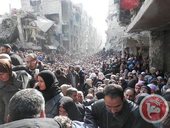
By Zena Ozeir
Zena Ozeir is a Palestine-solidarity activist based in Detroit. She was a main organizer of the Right of Return Conference that took place in Boston last year.
Today marks the 66th annual Nakba Day, the commemoration of the displacement of 750,000 Palestinians in 1948 amid the creation of the state of Israel. It is not merely a time for remembering the distant past, however, but instead it is a harsh reminder of the continued violence and displacement faced by Palestinian refugees.
Just this past weekend, the Lebanese government began deporting Palestinian refugees who had sought refuge in their country while fleeing the Syrian conflict. Lebanon's General Secretary Department has already deported at least 41 Palestinian refugees back to Syria even though they had legally entered the country, and has further banned the entry of Palestinian refugees fleeing Syria for the foreseeable future.
Lebanon has previously opened it's doors to over one million refugees fleeing the Syrian conflict, but is now targeting Palestinian refugees who wish to enter.
This policy is the newest onslaught by neighboring Arab countries on Palestinian refugees fleeing from Syria, who have been one of the most vulnerable groups caught in the violence plaguing the country. The ongoing targeted attacks by the Syrian government and refusal of entry by neighboring countries has left Palestinian refugees in Syria in an increasingly dangerous position.
This Nakba Day not only commemorates the initial catastrophe that ethnically cleansed 750,000 Palestinians, but also the second, and third displacement of the Palestinian refugees of Syria.
Since the start of the conflict, Palestinian refugee camps have been targeted by both sides, as rebel forces have infiltrated their midst and government forces have responded with indiscriminate shelling. As the Syrian conflict rages on with no end in sight, we see the increasing vulnerability faced by the refugees from numerous Syrian refugee camps.
The latest statistics show that more than 70 percent of Palestinian refugees in Syria are in need of humanitarian assistance and more than 50 percent are internally displaced.
The constant violence which has led to starvation and dire economic realities for Palestinian refugees is magnified by the exclusionary policies of neighboring states such as Jordan, Turkey and now, Lebanon. As early as April 2012, Jordanian authorities were denying entry to Palestinian refugees and more recently have adopted a policy of non-entry to all Palestinians fleeing Syria.
The newest discriminatory policy by the Lebanese authorities further comprises the largest and longest suffering group of refugees in the world today. Now doubly and triply displaced, Palestinians are subject to the most restricted movement not only in their homeland, but in neighboring countries where their refugee status keeps them from being able to flee to safety.
Commemorating the Nakba and fighting for the Right of Return for the more than seven million Palestinian refugees worldwide is more important now than ever as the position of these refugees is further compromised. We must look not only at the historical context of the day that is in remembrance, but also at the present situations that Palestinian refugees in historic Palestine, Syria, Lebanon, and Jordan find themselves, that of a constant and ongoing Nakba.
As the Right of Return has slowly been marginalized from the mainstream discourse, the Israeli government increasingly refuses to seriously consider the Right of Return in negotiations. It seems that the Right of Return has been relegated to the realm of the theoretical and abstract, and is being increasingly divorced from the political solution that Palestinian refugees are being allowed to envision.
But Palestinian refugees will continue to position themselves around the memory of their past and present displacement and insist upon their inalienable right to return to their homes in historic Palestine. Until Palestinians return to their homes, let us repeat, the Right of Return for all Palestinian refugees is nonnegotiable.
As Palestinian refugees from Syria are today caught in the crossfire, stateless, and without even the most basic human rights, the Right of Return must be put at the forefront now more than ever.
Palestinians in Syria today insist that they want to return to their country. Now it is time for Israel to cede to this demand.
Zena Ozeir is a Palestine-solidarity activist based in Detroit. She was a main organizer of the Right of Return Conference that took place in Boston last year.
Today marks the 66th annual Nakba Day, the commemoration of the displacement of 750,000 Palestinians in 1948 amid the creation of the state of Israel. It is not merely a time for remembering the distant past, however, but instead it is a harsh reminder of the continued violence and displacement faced by Palestinian refugees.
Just this past weekend, the Lebanese government began deporting Palestinian refugees who had sought refuge in their country while fleeing the Syrian conflict. Lebanon's General Secretary Department has already deported at least 41 Palestinian refugees back to Syria even though they had legally entered the country, and has further banned the entry of Palestinian refugees fleeing Syria for the foreseeable future.
Lebanon has previously opened it's doors to over one million refugees fleeing the Syrian conflict, but is now targeting Palestinian refugees who wish to enter.
This policy is the newest onslaught by neighboring Arab countries on Palestinian refugees fleeing from Syria, who have been one of the most vulnerable groups caught in the violence plaguing the country. The ongoing targeted attacks by the Syrian government and refusal of entry by neighboring countries has left Palestinian refugees in Syria in an increasingly dangerous position.
This Nakba Day not only commemorates the initial catastrophe that ethnically cleansed 750,000 Palestinians, but also the second, and third displacement of the Palestinian refugees of Syria.
Since the start of the conflict, Palestinian refugee camps have been targeted by both sides, as rebel forces have infiltrated their midst and government forces have responded with indiscriminate shelling. As the Syrian conflict rages on with no end in sight, we see the increasing vulnerability faced by the refugees from numerous Syrian refugee camps.
The latest statistics show that more than 70 percent of Palestinian refugees in Syria are in need of humanitarian assistance and more than 50 percent are internally displaced.
The constant violence which has led to starvation and dire economic realities for Palestinian refugees is magnified by the exclusionary policies of neighboring states such as Jordan, Turkey and now, Lebanon. As early as April 2012, Jordanian authorities were denying entry to Palestinian refugees and more recently have adopted a policy of non-entry to all Palestinians fleeing Syria.
The newest discriminatory policy by the Lebanese authorities further comprises the largest and longest suffering group of refugees in the world today. Now doubly and triply displaced, Palestinians are subject to the most restricted movement not only in their homeland, but in neighboring countries where their refugee status keeps them from being able to flee to safety.
Commemorating the Nakba and fighting for the Right of Return for the more than seven million Palestinian refugees worldwide is more important now than ever as the position of these refugees is further compromised. We must look not only at the historical context of the day that is in remembrance, but also at the present situations that Palestinian refugees in historic Palestine, Syria, Lebanon, and Jordan find themselves, that of a constant and ongoing Nakba.
As the Right of Return has slowly been marginalized from the mainstream discourse, the Israeli government increasingly refuses to seriously consider the Right of Return in negotiations. It seems that the Right of Return has been relegated to the realm of the theoretical and abstract, and is being increasingly divorced from the political solution that Palestinian refugees are being allowed to envision.
But Palestinian refugees will continue to position themselves around the memory of their past and present displacement and insist upon their inalienable right to return to their homes in historic Palestine. Until Palestinians return to their homes, let us repeat, the Right of Return for all Palestinian refugees is nonnegotiable.
As Palestinian refugees from Syria are today caught in the crossfire, stateless, and without even the most basic human rights, the Right of Return must be put at the forefront now more than ever.
Palestinians in Syria today insist that they want to return to their country. Now it is time for Israel to cede to this demand.
|
|
Israeli police dispersed a rally marking the 66th anniversary of the Nakba in East Jerusalem on Thursday afternoon, injuring six and detaining four protestors.
The rally came as protests erupted across the West Bank and Gaza as thousands turned out to commemorate the expulsion of 750,000 Palestinians from what became the state of Israel in 1948. Israeli forces arrested four Palestinian protesters at the East Jerusalem protest including Yasser Qaws, Ismail al-Khatib, Abed Barbar, as well as a fourth person who was not identified. |
Witnesses on the scene said that Israeli forces pushed and shoved participants, injuring six people including lawmaker Jihad Abu Zaneed and medic Nidal Abu Gharbia.
Medics told Ma'an that three people were taken to hospitals for treatment following the dispersal by Israeli police forces.
During the protest, participants raised black flags with "Alll Palestine is ours" written on them, Palestinian flags, and flags with the "key of return" printed on them.
An Israeli police spokesman said in a statement that five "Arab suspects" had been arrested at the scene," but denied that there were any injuries.
He added that "stones were thrown at officers."
Medics told Ma'an that three people were taken to hospitals for treatment following the dispersal by Israeli police forces.
During the protest, participants raised black flags with "Alll Palestine is ours" written on them, Palestinian flags, and flags with the "key of return" printed on them.
An Israeli police spokesman said in a statement that five "Arab suspects" had been arrested at the scene," but denied that there were any injuries.
He added that "stones were thrown at officers."

Two Palestinians were injured in clashes with Israeli soldiers in the Safa area of Beit Ummar village south of Hebron after forces raided their neighborhood.
Spokesman for the popular resistance committee Mohammad Ayyad Awad said that Israeli troops raided Safa area, before residents in the area tried to stop them with rocks.
Israeli forces fired rubber-coated steel bullets, stun grenades, and tear gas in the ensuing clashes.
Mohammad Khalil Mahmoud Abu Dayyeh, 23, was hit by a rubber-coated steel bullet in the thigh. Israeli forces tried to arrest him, but he was carried away to an ambulance before the forces could reach him, Awad said.
Awad added that another 16-year-old was shot with a rubber-coated steel bullet in the left foot and was treated on the scene, while dozens of others suffered from excessive tear gas inhalation.
An Israeli military spokesman did not immediately return to calls seeking comment.
The clashes came amid protests across the West Bank in commemoration of Nakba Day, which marks the expulsion of 750,000 Palestinians from their homes in what became the state of Israel in 1948.
Spokesman for the popular resistance committee Mohammad Ayyad Awad said that Israeli troops raided Safa area, before residents in the area tried to stop them with rocks.
Israeli forces fired rubber-coated steel bullets, stun grenades, and tear gas in the ensuing clashes.
Mohammad Khalil Mahmoud Abu Dayyeh, 23, was hit by a rubber-coated steel bullet in the thigh. Israeli forces tried to arrest him, but he was carried away to an ambulance before the forces could reach him, Awad said.
Awad added that another 16-year-old was shot with a rubber-coated steel bullet in the left foot and was treated on the scene, while dozens of others suffered from excessive tear gas inhalation.
An Israeli military spokesman did not immediately return to calls seeking comment.
The clashes came amid protests across the West Bank in commemoration of Nakba Day, which marks the expulsion of 750,000 Palestinians from their homes in what became the state of Israel in 1948.
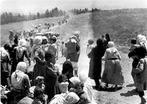
On the 66th anniversary of Palestinian Nakba (catastrophe), the Islamic-Christian Commission for the support of Jerusalem and holy sites said that the Palestinian Nakba is still ongoing amid international suspicious silence. In a press release on Thursday, the Commission said that Israeli occupation never ceased its deportation and confiscation policies against Palestinian people and Christian and Islamic holy sites especially al-Aqsa Mosque, targeting the Palestinian and Arab existence in Palestine.
In 1948 hundreds of thousands of Palestinians were displaced and forced to flee to different countries, the statement said.
The statement stressed Palestinian adherence to their rights topped by rights of return and the establishment of Palestinian state with Jerusalem as its capital.
The statement pointed out that millions of Palestinians were killed, injured, and forcibly displaced in the diaspora where they suffer very poor living conditions.
Around 30 Israeli massacres were carried out in Palestinian towns and villages as part of Israel's systematic ethnic cleansing policy that is considered the most striking example of ethnic cleansing and genocide in modern history, the commission underlined.
The Islamic-Christian Commission called on the international community to end the plight of Palestinian people after long decades of displacement and forced immigration.
In 1948 hundreds of thousands of Palestinians were displaced and forced to flee to different countries, the statement said.
The statement stressed Palestinian adherence to their rights topped by rights of return and the establishment of Palestinian state with Jerusalem as its capital.
The statement pointed out that millions of Palestinians were killed, injured, and forcibly displaced in the diaspora where they suffer very poor living conditions.
Around 30 Israeli massacres were carried out in Palestinian towns and villages as part of Israel's systematic ethnic cleansing policy that is considered the most striking example of ethnic cleansing and genocide in modern history, the commission underlined.
The Islamic-Christian Commission called on the international community to end the plight of Palestinian people after long decades of displacement and forced immigration.

Palestinian children have stressed their adherence to the right of return as granted by the Universal Declaration of Human Rights, the World Charter for Civil and Political Rights, the International Convention for the elimination of all forms of discrimination, and the Fourth Geneva Convention. The children addressed a press conference on Thursday that was organized by the Palestinian Ministry of Culture on in Gaza Strip to mark the 66th anniversary of Nakba.
Right of return is not subject to any statute of limitation, as it is a personal right that stems from the sanctity of the private property of the refugee according to which Jews had restored their confiscated properties after the Second World War, the children said.
It is an individual and collective right that could not be waived for any reason at any agreement or convention, they added.
The children handed a letter in English and Arabic to the UN representative in Gaza calling on the UN to work on the return of Palestinian refugees to their homeland from which they were forcibly expelled and to provide fair compensation for their material and psychological damage.
For his part, the UN representative welcomed the children delegation and vowed to deliver their letter to the UN Secretary-General.
Right of return is not subject to any statute of limitation, as it is a personal right that stems from the sanctity of the private property of the refugee according to which Jews had restored their confiscated properties after the Second World War, the children said.
It is an individual and collective right that could not be waived for any reason at any agreement or convention, they added.
The children handed a letter in English and Arabic to the UN representative in Gaza calling on the UN to work on the return of Palestinian refugees to their homeland from which they were forcibly expelled and to provide fair compensation for their material and psychological damage.
For his part, the UN representative welcomed the children delegation and vowed to deliver their letter to the UN Secretary-General.

Palestinian President, Mahmoud Abbas, said Wednesday: “After 66 years since the Palestinian catastrophe “al-Nakba”, Palestinians have been proving their presence on the map will establish Palestinian independent state with Jerusalem as a capital.” Delivering a speech ,on the 66 anniversary of Nakba, to the Palestinian people all over the world,
Abbas said that Palestine cause topped the agenda of the world, not as a refugees cause but as a national liberation and independence.
He asserted what has been achieved is the result of a political strategy that balanced between what is available and what is possible . He noted that Joining international bodies is seen as a significant unilateral diplomatic step towards Palestinian statehood. “We can say yes or say no as required by our supreme national interest,” he said.
Abbas hoped the 66 anniversary of al-Nakba will be the year of ending the long suffer to start new future for the Palestinian people. “ It is time to end the longest occupation in history. It is time for Israel’s leaders to understand that no homeland for the Palestinians but Palestine.”
Abbas said that Palestine cause topped the agenda of the world, not as a refugees cause but as a national liberation and independence.
He asserted what has been achieved is the result of a political strategy that balanced between what is available and what is possible . He noted that Joining international bodies is seen as a significant unilateral diplomatic step towards Palestinian statehood. “We can say yes or say no as required by our supreme national interest,” he said.
Abbas hoped the 66 anniversary of al-Nakba will be the year of ending the long suffer to start new future for the Palestinian people. “ It is time to end the longest occupation in history. It is time for Israel’s leaders to understand that no homeland for the Palestinians but Palestine.”
responded with "riot dispersal means," an army spokesman told AFP, using the term usually applied to the use of rubber bullets or tear gas.
In Ramallah, where President Mahmoud Abbas has his headquarters, people on the streets stood in silence for 66 seconds while sirens wailed.
"On this 66th anniversary of the Nakba we hope that this year will be the one in which our long suffering ends," Abbas said in a speech broadcast on Palestinian TV and radio on Wednesday evening.
"It is time to put an end to the longest occupation in modern history and time for Israel's leaders to understand that there is no other homeland for the Palestinians but Palestine," he said.
In Ramallah, where President Mahmoud Abbas has his headquarters, people on the streets stood in silence for 66 seconds while sirens wailed.
"On this 66th anniversary of the Nakba we hope that this year will be the one in which our long suffering ends," Abbas said in a speech broadcast on Palestinian TV and radio on Wednesday evening.
"It is time to put an end to the longest occupation in modern history and time for Israel's leaders to understand that there is no other homeland for the Palestinians but Palestine," he said.
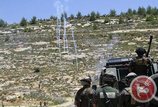
In Gaza City, speakers told large crowds that the Palestinian people would continue to struggle until the right of return and self-determination have been achieved.
"Nationalist struggle of all kinds will continue in order to forcefully achieve the right of return, self-determination and an independent Palestinian state with Jerusalem as its capital," Zakariyya al-Agha, a member of the Executive Committee of the PLO, told crowds.
He urged the Arab League and Organization of Islamic Cooperation to "end the historic tyranny practiced against the displaced Palestinian people, and to enable them to return to their homeland from which they were displaced in 1948."
Ahmad Bahar, deputy second speaker of the Palestinian Legislative Council, said that the right of return is "sacred" and urged Arab states to show responsibility towards Palestinian refugees.
The Hamas official urged the PLO to abandon negotiations with Israel, stressing that 20 years of talks have achieved nothing.
A crowd of demonstrators from all political factions marched from Gaza City to the Erez, or Beit Hanoun, crossing in northern Gaza, a Ma'an reporter said.
"Nationalist struggle of all kinds will continue in order to forcefully achieve the right of return, self-determination and an independent Palestinian state with Jerusalem as its capital," Zakariyya al-Agha, a member of the Executive Committee of the PLO, told crowds.
He urged the Arab League and Organization of Islamic Cooperation to "end the historic tyranny practiced against the displaced Palestinian people, and to enable them to return to their homeland from which they were displaced in 1948."
Ahmad Bahar, deputy second speaker of the Palestinian Legislative Council, said that the right of return is "sacred" and urged Arab states to show responsibility towards Palestinian refugees.
The Hamas official urged the PLO to abandon negotiations with Israel, stressing that 20 years of talks have achieved nothing.
A crowd of demonstrators from all political factions marched from Gaza City to the Erez, or Beit Hanoun, crossing in northern Gaza, a Ma'an reporter said.
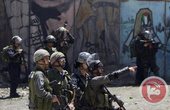
In Hebron, Palestinians clashed with Israeli forces following a rally in the city marking the Nakba.
Eleven men were hospitalized after being shot by rubber-coated steel bullets, with one victim hit in the eye. Dozens of protesters were injured by tear gas as hundreds joined a rally in the city center.
Demonstrators waved black flags to represent the right of return.
Hundreds also marched in Tubas, in the northern West Bank.
Eleven men were hospitalized after being shot by rubber-coated steel bullets, with one victim hit in the eye. Dozens of protesters were injured by tear gas as hundreds joined a rally in the city center.
Demonstrators waved black flags to represent the right of return.
Hundreds also marched in Tubas, in the northern West Bank.

Earlier, two Palestinians were shot dead by Israeli forces during a demonstration near Ofer detention center.
Witnesses and medical sources identified the victims as 22-year-old Muhammad Audah Abu al-Thahir from the Ramallah-area village of Abu Shukheidim and 17-year-old Nadim Siyam Nuwarah from al-Mazraa al-Qibliyya village in Ramallah district.
Witnesses and medical sources identified the victims as 22-year-old Muhammad Audah Abu al-Thahir from the Ramallah-area village of Abu Shukheidim and 17-year-old Nadim Siyam Nuwarah from al-Mazraa al-Qibliyya village in Ramallah district.

By Amjad Alqasis
Amjad Alqasis is a human rights lawyer, legal researcher and the International and Legal Advocacy Program Coordinator at BADIL Resource Center for Palestinian Residency and Refugee Rights.
Israel continues to implement a range of practices, laws and policies seeking to displace and dispossess the indigenous Palestinian population. This is achieved through exerting complete control, apartheid and occupation. Zionism continues to aim to colonize Palestine, also known as "historic" or "Mandate Palestine."
This Israeli colonial regime is not limited to the Palestinians living in the occupied Palestinian territory, that is the West Bank (including Jerusalem) and the Gaza Strip, but also targets Palestinians residing on the Israeli side of the "1949 Armistice Line."
This has been a long established understanding among all who are familiar with the history of Palestine: Israel's treatment of non-Jewish Palestinians throughout Israel and the OPT constitutes an overall discriminatory regime with the primary purpose of controlling the maximum amount of land with the minimum amount of indigenous Palestinians residing upon it.
The main components of this structure violate Palestinian rights in areas such as nationality, citizenship, residency, and land ownership. This system was originally applied during the Palestinian Nakba in 1948 with a view to dominate and dispossess all forcibly displaced Palestinians, including the 150,000 who were able to remain within the "1949 Armistice Line," later becoming Palestinian citizens of Israel.
The UN resolution from 1947 to partition Palestine triggered armed conflict between local Palestinians and Jewish colonists. This fostered an environment in which the Zionist movement could induce massive Palestinian displacement so as to create the Jewish state. The task of establishing and maintaining a Jewish state on a predominantly non-Jewish territory has been carried out by forcibly displacing the Arab-Palestinian majority population.
Today, 66 percent of the Palestinian people worldwide (seven out of eleven million) are themselves, or the descendants of, Palestinians who have been forcibly displaced by the Israeli regime. Israeli laws, such as the 1954 Prevention of Infiltration Law and Military Orders [PDF] 1649 and 1650, prohibit Palestinians from legally returning to Israel or the OPT.
This endeavor has been challenged in different ways, unsuccessfully. The military options of the "revolutionary" Arab regimes of yesteryear dictated politics to their own populations, rather than to the new colonizing power in the region. Later political efforts, both Palestinian and Arab testify daily to their futility.
In order to fight Zionist-Israeli colonial apartheid, we need to use different tools. Signs of this realization are emerging here and there occasionally across the Middle East.
A solution to the ongoing colonization and oppression of the Palestinian people should be found through a strict rights-based approach. These rights cannot be guaranteed through political negotiations, but through full adherence to, and implementation of, international law and rights. Thus, the conflict must be judged according to the values and standards of international law.
It is time to ensure that international law is not merely a paper tiger, but a legal system that protects rights, establishes obligations and, most importantly, creates realities in accordance with its values and principles. If this is not achieved, the ongoing Israeli disregard to international law in the Palestinian-Israeli conflict threats to undermine the very legitimacy of this crucial body of legal instruments, human rights, humanitarian law and international criminal law.
Rights-Based Approach
Amjad Alqasis is a human rights lawyer, legal researcher and the International and Legal Advocacy Program Coordinator at BADIL Resource Center for Palestinian Residency and Refugee Rights.
Israel continues to implement a range of practices, laws and policies seeking to displace and dispossess the indigenous Palestinian population. This is achieved through exerting complete control, apartheid and occupation. Zionism continues to aim to colonize Palestine, also known as "historic" or "Mandate Palestine."
This Israeli colonial regime is not limited to the Palestinians living in the occupied Palestinian territory, that is the West Bank (including Jerusalem) and the Gaza Strip, but also targets Palestinians residing on the Israeli side of the "1949 Armistice Line."
This has been a long established understanding among all who are familiar with the history of Palestine: Israel's treatment of non-Jewish Palestinians throughout Israel and the OPT constitutes an overall discriminatory regime with the primary purpose of controlling the maximum amount of land with the minimum amount of indigenous Palestinians residing upon it.
The main components of this structure violate Palestinian rights in areas such as nationality, citizenship, residency, and land ownership. This system was originally applied during the Palestinian Nakba in 1948 with a view to dominate and dispossess all forcibly displaced Palestinians, including the 150,000 who were able to remain within the "1949 Armistice Line," later becoming Palestinian citizens of Israel.
The UN resolution from 1947 to partition Palestine triggered armed conflict between local Palestinians and Jewish colonists. This fostered an environment in which the Zionist movement could induce massive Palestinian displacement so as to create the Jewish state. The task of establishing and maintaining a Jewish state on a predominantly non-Jewish territory has been carried out by forcibly displacing the Arab-Palestinian majority population.
Today, 66 percent of the Palestinian people worldwide (seven out of eleven million) are themselves, or the descendants of, Palestinians who have been forcibly displaced by the Israeli regime. Israeli laws, such as the 1954 Prevention of Infiltration Law and Military Orders [PDF] 1649 and 1650, prohibit Palestinians from legally returning to Israel or the OPT.
This endeavor has been challenged in different ways, unsuccessfully. The military options of the "revolutionary" Arab regimes of yesteryear dictated politics to their own populations, rather than to the new colonizing power in the region. Later political efforts, both Palestinian and Arab testify daily to their futility.
In order to fight Zionist-Israeli colonial apartheid, we need to use different tools. Signs of this realization are emerging here and there occasionally across the Middle East.
A solution to the ongoing colonization and oppression of the Palestinian people should be found through a strict rights-based approach. These rights cannot be guaranteed through political negotiations, but through full adherence to, and implementation of, international law and rights. Thus, the conflict must be judged according to the values and standards of international law.
It is time to ensure that international law is not merely a paper tiger, but a legal system that protects rights, establishes obligations and, most importantly, creates realities in accordance with its values and principles. If this is not achieved, the ongoing Israeli disregard to international law in the Palestinian-Israeli conflict threats to undermine the very legitimacy of this crucial body of legal instruments, human rights, humanitarian law and international criminal law.
Rights-Based Approach
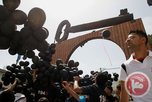
Peace cannot be recognized when fundamental human rights and freedoms are violated. A rights-based approach [PDF] is characterized by mechanisms, methods, tools and activities that are designed to complement the notion of humanity's struggle for freedom, equality, justice and development for all. In other words, a rights-based approach should integrate norms, standards and principles of the international rights system into the plans, policies and processes that seek solutions to the conflict.
In the case of Palestine, this approach would entail solutions based on international law rather than a reliance on political negotiations to bring about a long lasting and just solution.
Seen from this prism, it is morally and legally wrong to refer to illegal Israeli settlements in the OPT as "undermining efforts towards peace," as it is regularly the case in political circles, whilst in reality these settlements constitute a violation of numerous international standards and principles.
As such, they are but one of a growing number of physical manifestations of Israel's ongoing impunity. This represents an ugly and dangerous precedent, and if the future sanctity of international law and standard is to be protected, its implementation should not be subject to negotiations, but demanded from the outset.
Fundamental to Palestinian rights is the right to self-determination. It is the basis for the implementation of the most important fundamental rights and freedoms such as the right to be free from all forms of racial discrimination or simply to live a life in dignity and free from oppression, occupation and colonization.
The International Court of Justice refers to the right to self-determination as a right held by the people rather than a right held by governments alone. The right of the Palestinian people to self-determination is deep-seated in international law, most importantly within the International Covenants on Human Rights, the Universal Declaration of Human Rights and the Declaration on the Granting of Independence to Colonial Countries and Peoples and the Vienna Declaration.
In addition to that, and equally important, all Palestinian refugees have the right to return. International best practice stresses that refugees be offered their choice of solution in a voluntary and informed manner. A rights-based approach to assistance and protection, moreover, requires that refugees are consulted and given a right to participate in the design and implementation of national and international interventions.
In the case of Palestine, this approach would entail solutions based on international law rather than a reliance on political negotiations to bring about a long lasting and just solution.
Seen from this prism, it is morally and legally wrong to refer to illegal Israeli settlements in the OPT as "undermining efforts towards peace," as it is regularly the case in political circles, whilst in reality these settlements constitute a violation of numerous international standards and principles.
As such, they are but one of a growing number of physical manifestations of Israel's ongoing impunity. This represents an ugly and dangerous precedent, and if the future sanctity of international law and standard is to be protected, its implementation should not be subject to negotiations, but demanded from the outset.
Fundamental to Palestinian rights is the right to self-determination. It is the basis for the implementation of the most important fundamental rights and freedoms such as the right to be free from all forms of racial discrimination or simply to live a life in dignity and free from oppression, occupation and colonization.
The International Court of Justice refers to the right to self-determination as a right held by the people rather than a right held by governments alone. The right of the Palestinian people to self-determination is deep-seated in international law, most importantly within the International Covenants on Human Rights, the Universal Declaration of Human Rights and the Declaration on the Granting of Independence to Colonial Countries and Peoples and the Vienna Declaration.
In addition to that, and equally important, all Palestinian refugees have the right to return. International best practice stresses that refugees be offered their choice of solution in a voluntary and informed manner. A rights-based approach to assistance and protection, moreover, requires that refugees are consulted and given a right to participate in the design and implementation of national and international interventions.
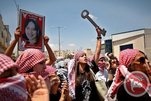
The United Nations High Commissioner for Refugees adopted both the principle of voluntariness (refugee choice) in the search for durable solutions, and a participatory approach in its operations. The framework for durable solutions for the Palestinians forcibly displaced during the Nakba is set out in Article 11 of UN General Assembly Resolution 194 which resolves that the refugees be allowed to return to their homes at the earliest practical date and that compensation be paid to those choosing not to return, and for loss or damage to property.
Internationally recognized rights and principles trigger specific state responsibilities at the international level. Third party states have a legal duty to cooperate in the process of bringing to an end Israel's violations and breaches of international law, including the refusal of such states to provide aid or assistance to Israel, or to recognize the illegal situation that has arisen from Israeli acts.
Israel's continuous and calculated strangulation of the Palestinian people must be properly challenged by the international community, and this challenge must come from an assessment of Israeli actions and policy through the lens of international law.
The facts that Israel is leaving all across Palestine demonstrate that such an assessment will reveal elements of an international crime against humanity, and Israel's regime must be judged accordingly, with the state's impunity for these crimes brought to an end.
The silence of powerful members of the international community in relation to these crimes continues. The resulting reality represents a worst case scenario: the intense and prolonged suffering of a colonized and occupied population, witnessed in conjunction with an emphatic politicization and devaluing of international law.
Internationally recognized rights and principles trigger specific state responsibilities at the international level. Third party states have a legal duty to cooperate in the process of bringing to an end Israel's violations and breaches of international law, including the refusal of such states to provide aid or assistance to Israel, or to recognize the illegal situation that has arisen from Israeli acts.
Israel's continuous and calculated strangulation of the Palestinian people must be properly challenged by the international community, and this challenge must come from an assessment of Israeli actions and policy through the lens of international law.
The facts that Israel is leaving all across Palestine demonstrate that such an assessment will reveal elements of an international crime against humanity, and Israel's regime must be judged accordingly, with the state's impunity for these crimes brought to an end.
The silence of powerful members of the international community in relation to these crimes continues. The resulting reality represents a worst case scenario: the intense and prolonged suffering of a colonized and occupied population, witnessed in conjunction with an emphatic politicization and devaluing of international law.

Israeli forces shot and killed a young Palestinian man and a teenage boy Thursday during a protest rally marking the 66th anniversary of the Nakba west of Ramallah in the central West Bank.
Witnesses and medical sources identified the victims as 22-year-old Muhammad Audah Abu al-Thahir from the Ramallah-area village of Abu Shukheidim and 17-year-old Nadim Siyam Nuwarah from al-Mazraa al-Qibliyya village in Ramallah district.
The victims, according to medical sources, were shot by live ammunition in the chest. Their bodies were evacuated to Ramallah Medical Complex.
Medics said three teenagers were also injured by live bullets. One was struck in the chest, one in the foot, and one in the leg. Doctors say they are in stable condition.
An Israeli military spokeswoman did not immediately return calls.
Participants in the rally near Ofer detention center said they also wanted to show solidarity with Palestinian prisoners held without trial who have been on hunger strike for 22 days.
Palestinians across the occupied territories and elsewhere were commemorating the Nakba, or catastrophe, of the founding of the State of Israel on Thursday.
During the Nakba, more than 760,000 Palestinians -- estimated today to number more than 5 million with their descendants -- fled or were driven from their homes in 1948.
Witnesses and medical sources identified the victims as 22-year-old Muhammad Audah Abu al-Thahir from the Ramallah-area village of Abu Shukheidim and 17-year-old Nadim Siyam Nuwarah from al-Mazraa al-Qibliyya village in Ramallah district.
The victims, according to medical sources, were shot by live ammunition in the chest. Their bodies were evacuated to Ramallah Medical Complex.
Medics said three teenagers were also injured by live bullets. One was struck in the chest, one in the foot, and one in the leg. Doctors say they are in stable condition.
An Israeli military spokeswoman did not immediately return calls.
Participants in the rally near Ofer detention center said they also wanted to show solidarity with Palestinian prisoners held without trial who have been on hunger strike for 22 days.
Palestinians across the occupied territories and elsewhere were commemorating the Nakba, or catastrophe, of the founding of the State of Israel on Thursday.
During the Nakba, more than 760,000 Palestinians -- estimated today to number more than 5 million with their descendants -- fled or were driven from their homes in 1948.
|
|
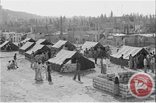
By Saeb Erekat
Saeb Erekat is chief Palestinian negotiator for the PLO. Today is the anniversary of what we Palestinians refer to as the Nakba, our catastrophe – although a single word cannot begin to explain it, and a single day cannot begin to commemorate it. More than ever before, Israel needs come to terms with the horrors it has caused since 1948, by ending its subjugation of millions rather than intensifying its denial and trying to legitimize its persecution. Peace can only come through justice and reconciliation. |
This day, in 1948, marks the forced exile of over 750,000 Palestinians from their homes and lands. Some were subjected to brutal massacres, many fled for fear of their lives. A few managed to stay in what would become Israel. All suffered. Sixty-six years later, all continue to suffer.
The Nakba is a story of fear and intimidation, of denial and persecution, a cruel, unending reality.
Today in occupied East Jerusalem, Palestinian families are evicted from their homes due to claims that their property belonged to Jews before 1948, while being forbidden from returning to their pre-1948 homes in West Jerusalem.
In Gaza – one of the most densely populated areas in the world – 1.2 million refugees overlook the open areas of what is now southern Israel. In my own home town, Jericho, there are two refugee camps where thousands continue to live in miserable conditions. In 2014, Palestinian children died of starvation at the Yarmouk refugee camp in Syria.
The Nakba is a story of fear and intimidation, of denial and persecution, a cruel, unending reality.
Today in occupied East Jerusalem, Palestinian families are evicted from their homes due to claims that their property belonged to Jews before 1948, while being forbidden from returning to their pre-1948 homes in West Jerusalem.
In Gaza – one of the most densely populated areas in the world – 1.2 million refugees overlook the open areas of what is now southern Israel. In my own home town, Jericho, there are two refugee camps where thousands continue to live in miserable conditions. In 2014, Palestinian children died of starvation at the Yarmouk refugee camp in Syria.
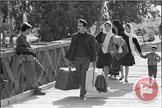
Israel, which claims to be a democracy for all its citizens, continues to ban the villagers of Iqrit and Kufr Birem, two Christian villages in the Galilee, from returning to their lands, despite a ruling from the Israeli High Court of Justice on the matter.
This is not the only example of persecution within Israel. Prime Minister Benjamin Netanyahu's promotion of the "nationality bill," determining Israel as the Jewish nation-state, is one more in a long line of discriminatory laws against a fifth of Israel’s own population, the original inhabitants of the land.
A list of laws which make it not only acceptable, but legally admissible, to discriminate against Israel's own citizens for belonging to a different ethnic-religious group.
Meanwhile, in the land which Israel has illegally occupied since 1967, settlers and soldiers use similar methods of intimidation and fear to force Palestinians from their homes.
The reality in the West Bank is no less than apartheid, and, in Gaza, out and out siege. Both within occupied Palestine and further afield, those who have been waiting 66 years, with their keys in hand, continue to wait.
Palestine has recognized Israel's right to exist since 1988. We are not asking for Hebrew not to be an official language or Jewish holidays not to be official holidays. The character of Israel is not for us to define.
This is not the only example of persecution within Israel. Prime Minister Benjamin Netanyahu's promotion of the "nationality bill," determining Israel as the Jewish nation-state, is one more in a long line of discriminatory laws against a fifth of Israel’s own population, the original inhabitants of the land.
A list of laws which make it not only acceptable, but legally admissible, to discriminate against Israel's own citizens for belonging to a different ethnic-religious group.
Meanwhile, in the land which Israel has illegally occupied since 1967, settlers and soldiers use similar methods of intimidation and fear to force Palestinians from their homes.
The reality in the West Bank is no less than apartheid, and, in Gaza, out and out siege. Both within occupied Palestine and further afield, those who have been waiting 66 years, with their keys in hand, continue to wait.
Palestine has recognized Israel's right to exist since 1988. We are not asking for Hebrew not to be an official language or Jewish holidays not to be official holidays. The character of Israel is not for us to define.
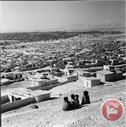
But we will not allow any Palestinian to be portrayed as the immigrant or intruder in his or her own land. We were here in 1948: We were here for centuries before that – Muslims, Christians and Jews – all Palestinians. The concept of an exclusively Jewish state naturally entails the denial of the Nakba. It tells us: "This is our land. You were on it illegally, temporarily, by mistake." It is a way of asking us to deny the existence of our people and the horrors that befell them in 1948. No people should be asked to do that.
We will not be complicit in the notion that any ethnic-religious group should have dominance over any other. We will not accept the denial of basic human rights to which all are entitled.
Rather than accepting historical responsibility, rather than acknowledging a painful truth about the birth of Israel and addressing it, as a step toward peace, the Israeli government attempts to wipe the event from history.
In Israel, it is forbidden by law to even commemorate the Nakba. If you can erase the narrative, it is much easier to erase the people. This Israeli government, in particular, is taking extraordinary measures to achieve this. Is it any wonder that we have not managed to reach an agreement at this time?
Today, we remember those who have lost their lives, at the hands of their oppressors, in their quest for freedom and dignity. Despite this, we are ready to live side by side in peace with our Israeli neighbors. We hope Israelis, if not their current government, will move in that direction.
At this point we do not know what the future will look like in terms of a solution, or when it will come. What we know for certain is that we will remain.
We will not be complicit in the notion that any ethnic-religious group should have dominance over any other. We will not accept the denial of basic human rights to which all are entitled.
Rather than accepting historical responsibility, rather than acknowledging a painful truth about the birth of Israel and addressing it, as a step toward peace, the Israeli government attempts to wipe the event from history.
In Israel, it is forbidden by law to even commemorate the Nakba. If you can erase the narrative, it is much easier to erase the people. This Israeli government, in particular, is taking extraordinary measures to achieve this. Is it any wonder that we have not managed to reach an agreement at this time?
Today, we remember those who have lost their lives, at the hands of their oppressors, in their quest for freedom and dignity. Despite this, we are ready to live side by side in peace with our Israeli neighbors. We hope Israelis, if not their current government, will move in that direction.
At this point we do not know what the future will look like in terms of a solution, or when it will come. What we know for certain is that we will remain.
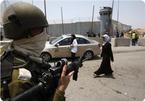
Israeli Occupation Forces (IOF) have declared on Thursday a state of alert in the West Bank "in anticipation of violence erupting" on the 66th anniversary of the Palestinian Nakba (catastrophe), Israeli radio reported. The broadcast added that Israeli forces intensified their presence at points of contact such as Qalandiya checkpoint and the Ofer prison in Ramallah.
Palestinian people all over the world commemorate today the 66th anniversary of Nakba which marks the anniversary of the forcible eviction of hundreds of thousands of Palestinians from their homeland by Zionist gangs in 1948 to create what they called the State of Israel on the land of Palestine.
Palestinian people all over the world commemorate today the 66th anniversary of Nakba which marks the anniversary of the forcible eviction of hundreds of thousands of Palestinians from their homeland by Zionist gangs in 1948 to create what they called the State of Israel on the land of Palestine.

Israeli MK Fania Kirschenbaum (Likude- Beiteinu) sent on Wednesday night a letter to Israeli finance minister Yair Lapid , asking him to cut off funding the universities that allow to commemorate the Nakba Day inside their campuses.
The problem, she said, was especially acute at universities “The many protests taking place in campuses by student organizations, which Israeli government is paying for, and is required to provide security for as well,” she wrote. “I appeal to you to use your legal powers to prevent the use of 'state' money for these activities.
Earlier this week, about 300 Palestinians and leftist students at Tel Aviv University held a Nakba commemoration at the campus. The students carried photos of Palestinians who fled their homes in 1948.
Israeli TV channel 10 reported that Yair would not cut off funding to the universities according to Kirschenbaum's request.
The problem, she said, was especially acute at universities “The many protests taking place in campuses by student organizations, which Israeli government is paying for, and is required to provide security for as well,” she wrote. “I appeal to you to use your legal powers to prevent the use of 'state' money for these activities.
Earlier this week, about 300 Palestinians and leftist students at Tel Aviv University held a Nakba commemoration at the campus. The students carried photos of Palestinians who fled their homes in 1948.
Israeli TV channel 10 reported that Yair would not cut off funding to the universities according to Kirschenbaum's request.
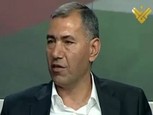
Abdul-Nasser Ferwana
Mass Executions Took Place Following The Nakba --
Palestinian Researcher and head of the Census Department at the Palestinian Ministry of Detainees, Abdul-Nasser Ferwana, states that around 20% of all Palestinians in the occupied territories have been imprisoned, and that the period which followed the Nakba of 1948 witnessed executions and crimes more brutal and criminal than in later years.
Such brutal attacks were highlighted by intentional harm, physical assaults and policies of expulsion, forced collective deportation, murder and organized massacres targeting Palestinians, all with the aim of forcing the living to escape, in fear for their lives.
“The army executed large numbers of Palestinians after arresting them,” Ferwana stated. “Other massacres were committed against Palestinians who escaped, and who were later held from minutes to hours before they were executed.”
He added that the period which followed the Nakba, when Israeli forces occupied historic Palestine and declared their state on its ruins, the armed forces began with massive arrests carried out by the Irgun, Haganah and Stern Gang terrorist groups, who observed any Arab or Palestinian as an enemy, as a person deserving to die.
Ferwana further stated that, as Palestinians mark the sixty-sixth anniversary of the Nakba (The Catastrophe), when historic Palestine fell under Israeli occupation in 1948, the number of Palestinians who have been arrested and imprisoned since then exceeds 800.000, representing 20% of all segments and sectors of Palestinian society.
The arrests, compared to the total population, are the largest in the world, while most Palestinians who have experienced kidnapping and imprisonment have been repeatedly arrested and, in many cases, several family members have also been imprisoned by Israel.
“The most serious implication is Israel’s policy of incarceration, as routine arrests are a part of daily policies of assaults against the Palestinians,” Ferwana stated. “Israel uses the arrests to humiliate, pressure and blackmail the prisoners and their families. The army has also repeatedly used the detainees as human shields.”
The Palestinian official said that Israel is currently holding captive 5,243 Palestinians and 28 non-Palestinian political prisoners. 85.3% of the Palestinian detainees are from the West Bank, and 14.7% are from the Gaza Strip, Jerusalem and historic Palestine.
50% of the detainees are held in the Negev detention camp, Ofer and Majeddo (Megiddo). The rest are held in 15 other detention and interrogation centers.
Ferwana added that Israel is currently holding captive 18 Palestinian women; the longest serving of them is Lina al-Jarbouny, who was taken prisoner in April of 2002, in addition to 196 children, 191 Administrative Detainees (without charges or trial), 11 elected legislators and one former minister of local government.
Israel also violated its own vows to release all veteran detainees, held since before the First Oslo Agreement on 1993. The 30 detainees were supposed to be released on March 28, as part of an American-mediated deal to ensure the resumption of direct Palestinian-Israeli negotiations.
----
On Tuesday [December 31, 2013] Israel released 26 veteran Palestinian detainees, as part of the third phase of releasing all detained Palestinians held since before the first Oslo peace agreement in 1993.
During the first and second phases, Israel released, back in mid-August, 26 veteran detainees (14 from Gaza and 12 from the West bank) and, in late October, it released 26 veteran detainees (21 from Gaza and 5 from the West Bank). 104 veteran detainees were supposed to be freed by March 28.
----
The oldest serving detainee is Karim Younis, who was taken prisoner more than 31 years ago, and Israel is refusing to release him.
Ferwana further stated that there are 130 Administrative Detainees holding a hunger strike which started 21 days ago, in protest of their ongoing imprisonment without charge or trial, and that some of them even started their strike more than two months ago.
He said that more detainees, not only Administrative Detainees, intend to join the strike, especially since Israel is still depriving them of their basic rights, and refuses to provide the ailing detainees with much needed adequate and specialized medical treatment, adding that the army's violations against the detainees are even escalating, in an attempt to force them to end their strike.
Ferwana called on people around the world, advocates of democracy, justice and human rights, to support the detainees, holding their “Revolution for Freedom”, in their battle against Administrative Detention, and for the release of all prisoners.
He said that increased regional, national and international actions are needed to pressure Israel into ending its violations.
Former Political Prisoner, Abdul-Nasser Ferwana
Head of the Census Department of The Palestinian Ministry of Detainees
Member of the Special Committee in Charge of Detainees’ Affairs in the Gaza Strip
Personal Website:
Palestine Behind Bars
Mass Executions Took Place Following The Nakba --
Palestinian Researcher and head of the Census Department at the Palestinian Ministry of Detainees, Abdul-Nasser Ferwana, states that around 20% of all Palestinians in the occupied territories have been imprisoned, and that the period which followed the Nakba of 1948 witnessed executions and crimes more brutal and criminal than in later years.
Such brutal attacks were highlighted by intentional harm, physical assaults and policies of expulsion, forced collective deportation, murder and organized massacres targeting Palestinians, all with the aim of forcing the living to escape, in fear for their lives.
“The army executed large numbers of Palestinians after arresting them,” Ferwana stated. “Other massacres were committed against Palestinians who escaped, and who were later held from minutes to hours before they were executed.”
He added that the period which followed the Nakba, when Israeli forces occupied historic Palestine and declared their state on its ruins, the armed forces began with massive arrests carried out by the Irgun, Haganah and Stern Gang terrorist groups, who observed any Arab or Palestinian as an enemy, as a person deserving to die.
Ferwana further stated that, as Palestinians mark the sixty-sixth anniversary of the Nakba (The Catastrophe), when historic Palestine fell under Israeli occupation in 1948, the number of Palestinians who have been arrested and imprisoned since then exceeds 800.000, representing 20% of all segments and sectors of Palestinian society.
The arrests, compared to the total population, are the largest in the world, while most Palestinians who have experienced kidnapping and imprisonment have been repeatedly arrested and, in many cases, several family members have also been imprisoned by Israel.
“The most serious implication is Israel’s policy of incarceration, as routine arrests are a part of daily policies of assaults against the Palestinians,” Ferwana stated. “Israel uses the arrests to humiliate, pressure and blackmail the prisoners and their families. The army has also repeatedly used the detainees as human shields.”
The Palestinian official said that Israel is currently holding captive 5,243 Palestinians and 28 non-Palestinian political prisoners. 85.3% of the Palestinian detainees are from the West Bank, and 14.7% are from the Gaza Strip, Jerusalem and historic Palestine.
50% of the detainees are held in the Negev detention camp, Ofer and Majeddo (Megiddo). The rest are held in 15 other detention and interrogation centers.
Ferwana added that Israel is currently holding captive 18 Palestinian women; the longest serving of them is Lina al-Jarbouny, who was taken prisoner in April of 2002, in addition to 196 children, 191 Administrative Detainees (without charges or trial), 11 elected legislators and one former minister of local government.
Israel also violated its own vows to release all veteran detainees, held since before the First Oslo Agreement on 1993. The 30 detainees were supposed to be released on March 28, as part of an American-mediated deal to ensure the resumption of direct Palestinian-Israeli negotiations.
----
On Tuesday [December 31, 2013] Israel released 26 veteran Palestinian detainees, as part of the third phase of releasing all detained Palestinians held since before the first Oslo peace agreement in 1993.
During the first and second phases, Israel released, back in mid-August, 26 veteran detainees (14 from Gaza and 12 from the West bank) and, in late October, it released 26 veteran detainees (21 from Gaza and 5 from the West Bank). 104 veteran detainees were supposed to be freed by March 28.
----
The oldest serving detainee is Karim Younis, who was taken prisoner more than 31 years ago, and Israel is refusing to release him.
Ferwana further stated that there are 130 Administrative Detainees holding a hunger strike which started 21 days ago, in protest of their ongoing imprisonment without charge or trial, and that some of them even started their strike more than two months ago.
He said that more detainees, not only Administrative Detainees, intend to join the strike, especially since Israel is still depriving them of their basic rights, and refuses to provide the ailing detainees with much needed adequate and specialized medical treatment, adding that the army's violations against the detainees are even escalating, in an attempt to force them to end their strike.
Ferwana called on people around the world, advocates of democracy, justice and human rights, to support the detainees, holding their “Revolution for Freedom”, in their battle against Administrative Detention, and for the release of all prisoners.
He said that increased regional, national and international actions are needed to pressure Israel into ending its violations.
Former Political Prisoner, Abdul-Nasser Ferwana
Head of the Census Department of The Palestinian Ministry of Detainees
Member of the Special Committee in Charge of Detainees’ Affairs in the Gaza Strip
Personal Website:
Palestine Behind Bars
